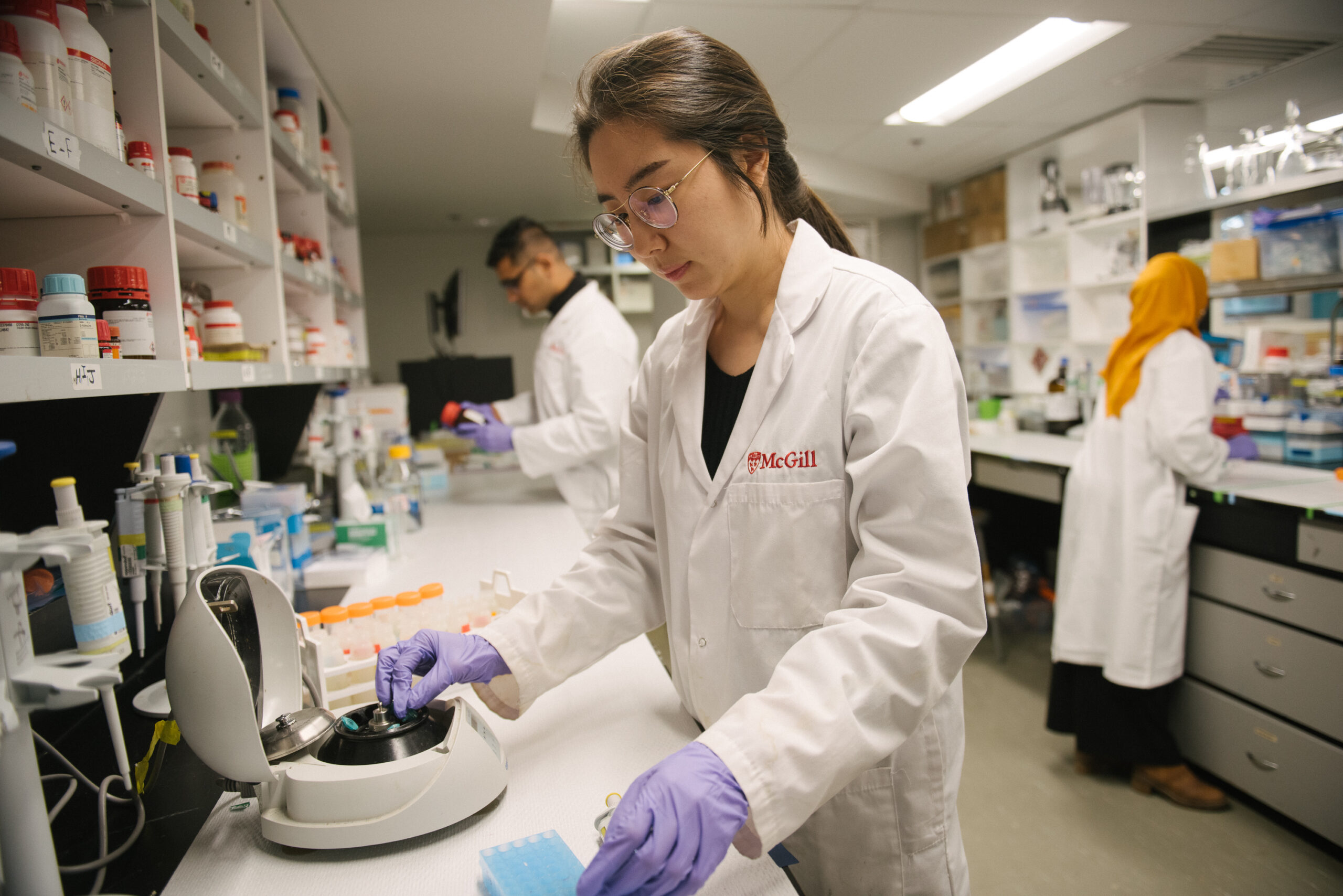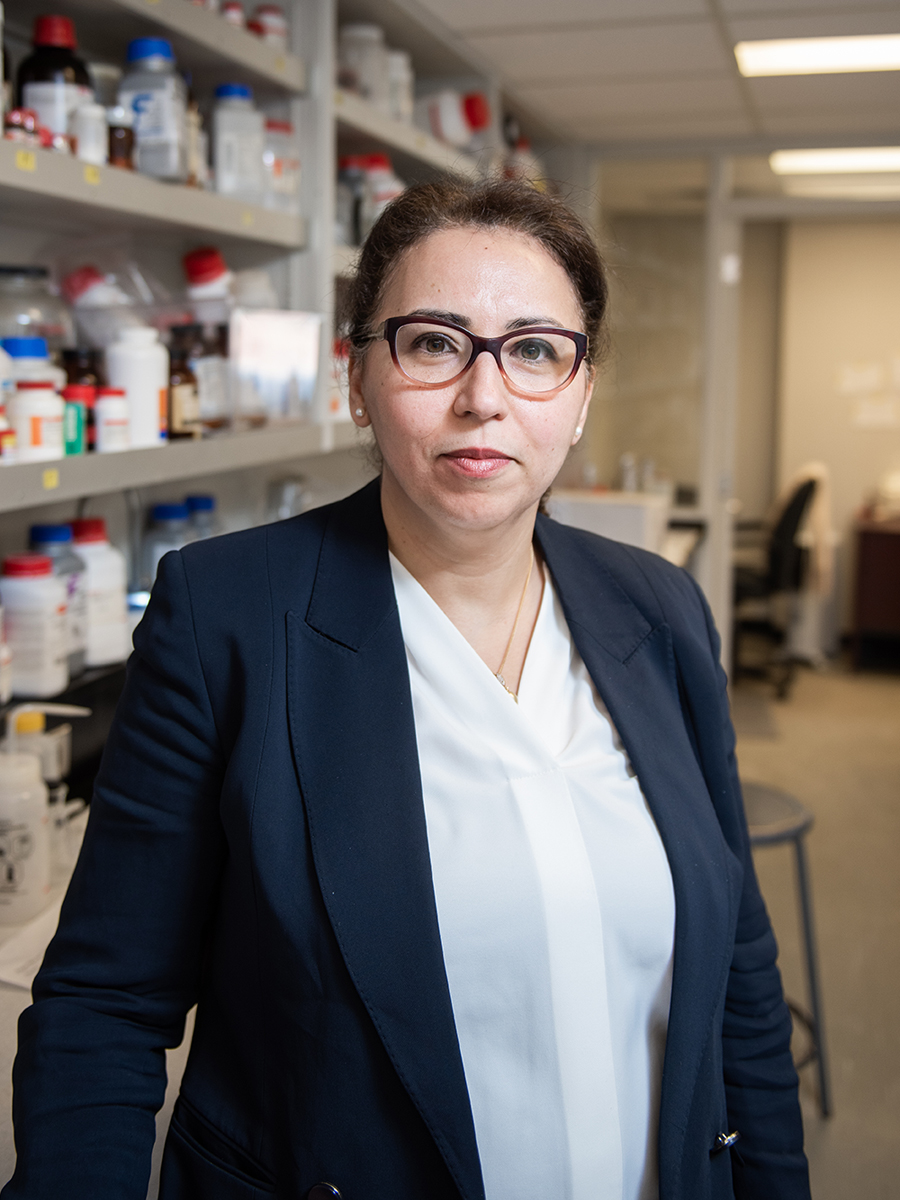
As the cost of living continues to rise, our need for affordable, local, and nutritious foods has never been greater. Quebec’s food producers want to meet that demand — but how can they innovate and stay competitive in a challenging economy?
Finding answers is the mission of the Consortium for Research, Innovation and the Transformation of Agri-food (Consortium RITA) at McGill University.
Led by Salwa Karboune, Associate Professor in the Department of Food Science and Agricultural Chemistry, the group brings businesses and researchers together to devise new ways of producing foods that are cost-effective, sustainable, and healthy for consumers.
Wide networks make impactful solutions

More than 250 agri-food businesses and 23 research institutions across Quebec have joined the Consortium RITA since its launch in 2017.
“Our main objective is to be a catalyst for collaboration between research institutions and the agri-food industry in order to advance the sector,” Karboune explains. “It’s a sector that is very important for Quebec. It’s also a sector facing challenges that offer opportunities for growth and innovation.”
The challenges of the sector are complex and multifaceted. They include making industrial processes more eco-friendly and efficient, creating sustainable packaging, and finding ways to use material left over from food processing.
Meeting those challenges could yield major environmental, economic, and health benefits. And the best way to find answers is for businesses and researchers to share knowledge and pool their resources for mutual benefit.
That’s the idea behind RITA’s pre-competitive platform, one of five organized by the group.
“We ask agri-food producers to come together around a common table, whether they’re competitors or not, and try to identify the challenges they’re facing in collaboration with research institutions,” says Karboune. “With this platform, we’re working to advance the general interests of the agri-food sector.”
A longstanding partnership with the Conseil de la transformation alimentaire du Québec (CTAQ) helps RITA align their pre-competitive networks with the sector’s evolving needs.
Other platforms facilitate knowledge-sharing networks to keep industry up to date with the latest developments in agri-food technology; offer funding for competitive research; and connect companies with students training as food scientists to develop new products.
Supporting small businesses and startups
RITA’s competitive and collaborative platform invites companies to partner with university researchers and apply for funding to conduct innovative research. Many of these projects emerge from the pre-competitive networks themselves.
This is especially advantageous for Quebec’s small agri-food businesses and startups. They can gain access to a range of experts working in food science and food packaging, marketing, nutrition and other fields through RITA — expertise they might not afford otherwise.
Researchers from Université de Montréal, Université Laval, Université du Québec, McGill, and several CEGEPs have partnered with major food producers like Agropur, Olymel, Nortera, and Fruit d’Or, as well as smaller Quebec companies.
In just seven years, Consortium RITA has funded more than 60 research projects that have found better ways of transforming, preserving, packaging, and sanitizing foods, with support from the Ministère de l’Agriculture, Pêcheries et Alimentation (MAPAQ).
The group has also helped Quebec startups launch new and improved products through its Food Product Development Laboratory.
“Many small companies have come to us with just a few ideas in mind, and we’ve helped them formulate their products, optimize them, and improve their shelf life,” says Karboune.
Making healthy ‘clean label’ foods
Some projects funded by RITA have explored how ozone, cold plasma, and light can reduce microbial build-up on poultry and vegetables. These could be new ways of keeping foods fresh without using artificial preservatives.
Another group led by Karboune has been mapping out the properties of natural antimicrobials like garlic, oregano oil, and various spices. In the right combination, these ingredients can extend the shelf life of food and replace artificial additives.
The needs and wants of consumers are at the heart of each project funded by RITA. What they’re looking for — tasty, healthy, sustainable, and affordable foods – can be more challenging to produce at an industrial scale than one would think.
“The consumer is at the heart of the agri-food industry’s work, and of our work at research institutions,” says Karboune.
“We want to ensure that consumers have healthy, nutritious foods and that these foods can improve their health and well-being.”
What’s clear from Karboune is that the consumer, food scientists, and food producers all want the same things — and projects like RITA that promote innovation and collaboration in the agri-food industry provide the recipe for success.
